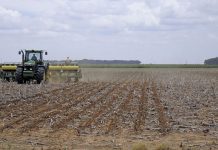The South African business and public had its final chance to debate the proposed new Expropriation Bill at recent public hearings in parliament. Agri SA, TAU SA, Absa, Forestry SA and Anglo American were the big guns from a commercial agricultural perspective, and Cosatu and the Association for Community and Rural Advancement (Ancra), represented the socio-historical argument, said Annelize Crosby of Agri SA.
While all the parties present agreed that appropriate expropriation legislation is necessary, Agri SA, TAU SA, Absa, Forestry SA and Anglo voiced their concerns over several aspects of the proposed bill. These groups all argued that the wide powers given to the expropriation authority and the proposed interaction between the expropriation authority, the courts and citizens were fundamentally flawed and therefore unconstitutional.
“The panel was defensive and unbending in most cases,” said Crosby. “The constitutional argument is of a legal and technical nature, so the panel’s legal team, many of whom were involved in the initial drafting process, fielded questions. Naturally they defended their draft.” Absa and Anglo were accused by the panel of apartheid sentiment, unpatriotic opinions and an unwillingness to transform. The committee seemed unwilling to accept the notion that market value should be central to determining compensation and were adamant the opinion of experts such as valuators and historians weren’t needed when expropriating assets.
Cosatu endorsed the Bill, adding that big companies such as Mittal Steel and Sasol should be nationalised, using the proposed legislation. According to Crosby they welcome the perceived move away from the willing-buyer-willing seller principle, claiming it would speed up the restitution process. – Wouter Kriel
‘Expropriation Bill not the only problem’
The proposed changes to the Land Use Management Act, which has been tabled in parliament, also empower the minister of agriculture to expropriate farmers’ movable property, with only the government authorised to determine compensation, warned Paul van der Walt, president of TAU SA.
“The proposed changes and the Expropriation Bill are in tandem a deadly combination which will impact negatively on the agricultural sector,” said Van der Walt. “No camouflage whatsoever can make the Bill acceptable. A so-called democratic process is being abused by a government with a two-thirds majority in the process of creating a situation even worse than in Zimbabwe.
The communists of the old Soviet regime would have been hard-pressed to surpass such a situation.” He also pointed out that in terms of the new act, government would retain expropriated land, implements and stock, in trust, until it was transferred to emerging farmers. “It is clear that even before suitable farmers are identified, the land will be transferred to government,” said Van der Walt.
“This confirms the view that government is eager to get the current commercial farmers off their land as quickly as possible, even though the land will not be transferred to new owners immediately. There are no guarantees government will ever transfer the title deeds of expropriated land to new farmers. In fact, expropriated land could be given to ministers and their struggle comrades. The South African government has already gained control of underground water and mineral rights – this situation is even worse than in Zimbabwe and government’s lack of transparency is viewed with much trepidation.”
He continued that TAU SA viewed the proposed expropriation of shares in agricultural businesses and trusts as a malicious attack on farmers. Farmers are major shareholders in most agricultural businesses and many have put their property and other assets into trusts. “The next step will be that the minister will also endeavour to expropriate personal trusts or shares to dish out to their comrades and cronies,” said Van der Walt. e called on the formal business sector to join the agricultural sector to resist the two proposed bills with everything at their disposal. “The free market principle is severely jeopardised,” he said. “Today agriculture is targeted, tomorrow mines, factories and businesses could face the same fate.” – Staff reporter
Comments on the bill
Agri SA, Annelize Crosby
Agri SA argued market value should be the pillar on which expropriated-land compensation is based and that mass expropriation could severely hurt foreign investment, food security and the rural societies of SA. The union felt positive land reform is possible with existing legislation and policies, such as the Agricultural Sector Plan and the Land Redistribution for Agricultural Development (LRAD) programme, which provide for public-private partnerships, Expropriation should only be used as a last resort said Agri SA’s Annelize Crosby.
Forestry SA
Forestry SA are concerned the extensive rights of access that the proposed Bill grants to expropriation officials, arguing they constitute an infringement of privacy rights protected by the constitution. They also said the 21-day period provided for an expropriated person to lodge a complaint is unreasonably short.
Anglo America
Anglo America are concerned that regional expropriation bodies would not have the necessary skills to manage the expropriation process. Anglo also felt professional value assessors and historians were needed to facilitate fair expropriation.
Absa, Steve Booysen
Steve Booysen, Absa’s executive head, issued a strongly worded letter to the portfolio committee warning that the legislation would hit agriculture and small businesses hardest, but has serious repercussions for all property owners. He said banks would be cautious about lending money where property is provided as collateral, as the Bill seeks to allow government to expropriate below market value, and mitigating against that risk would make finance extremely expensive.








